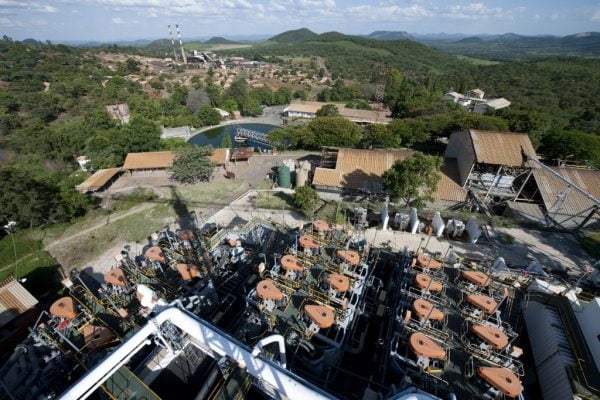ASA Resources has finally exited local nickel producer, Bindura Nickel Corporation (BNC), with local mining entity Sotic International taking up the majority 74,73 percent stake that was held by ASA and its partners, Mwana Africa and Zimnick.
The transaction was concluded on September 22, 2020, and Sotic will hold the BNC shares under the local entity, Kuvimba Mining House (Private) Limited.
“Mwana, Zimnick and Asa Gold hold a combined 74,73 percent of the entire issued share capital of the company. Consequently, the purchaser is now the indirect holder of such shares,” said BNC.
“Based on the market value of the shares of the company on 22 September 2020, the purchase consideration for the shares transferred from Zimnick, Mwana and Asa Gold to Kuvimba Mining House (Private) Limited was $3,48 billion.”
The deal has been long in coming after the initial agreement was made in July last year. This disposal marks the end of a series of attempts by ASA Resources to sell off the nickel producer, which it acquired in 2015.
ASA Resources’ assets in Zimbabwe initially included Bindura Nickel Corporation, Freda Rebecca Gold Mine as well as an agribusiness venture. The ASA group also has copper and diamond operations in Congo and South Africa, respectively, as well as another nickel mine in Botswana and a base metal exploration in the Democratic Republic of Congo (DRC). Throughout 2018, an unnamed third party was said to be a United Kingdom-based nickel producer with complementary interests in Southern Africa.
BNC’s problems worsened around 2017 after allegations of financial impropriety arose around the parent firm’s directors. ASA’s then chairman and CEO Yat Hoi Ning, was sacked from ASA in April 2017 following allegations of fraud, of figures ranging between $4 million and $15 million related to subsidiary gold producer Freda-Rebecca.
Ning was appointed executive chairman of ASA Resources mid-2015 after the rancorous removal of founder and then CEO of Mwana Africa, Kalaa Mpinga.
Also sacked at the time was BNC chairman Yim Kwan and Freda Rebecca financial controller Roy Shum. The ASA Resource group had been struggling to pay creditors when debts fall due, indicative of problems lying deeper than the on-going shareholder spats.
BNC has since halted its smelter construction project and is now completely focusing on the shaft deepening project as the miner aims to boost production in view of an anticipated increase in the global price of nickel.
The wait-and-see attitude on the smelter project is largely hinged on the price of the commodity. For the year to March 2020, BNC’s gross profit increased by seven percent from US$13,7 million in the comparative period last year to US$14,7 million.
The nickel miner said this, to a large extent, is a reflection of the corresponding decrease in the cost of sales. During the period under review, the firm’s balance sheet showed that total equity increased by 10 percent year-on-year.
Non-current liabilities of US$30 million decreased by four percent, mainly due to a decrease in the long-term portion of interest-bearing loans. Current liabilities decreased by 31 percent from US$20,5 million to US$14,2 million, mainly due to a decrease in the short-term portion of interest-bearing loans and related party payables as a result of a write-off.
Current assets decreased by 18 percent, mainly driven by a decrease in trade and other receivables.
Zim Daily




